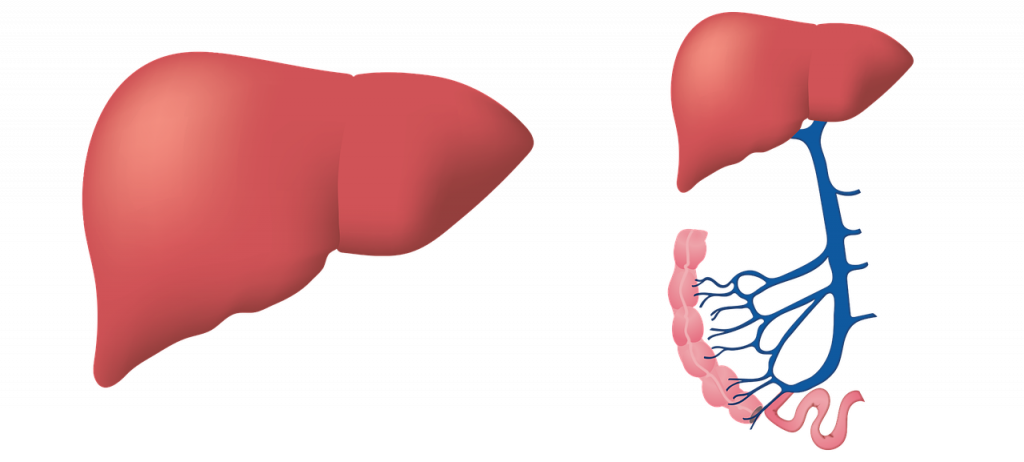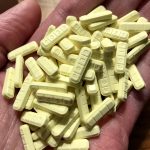Can Xanax Cause Liver Damage?

Drug-induced liver damage is a condition of the liver that is caused by physician-prescribed medications, over-the-counter medications, vitamins, hormones, herbs, illicit (“recreational”) drugs, and environmental toxins.
Very few drugs damage the liver enough to cause symptoms, such as a yellow color of the skin and eyes ( jaundice), abdominal pain, itching, and a tendency to bruise and bleed.
Doctors use the term drug-induced liver injury (DILI) to refer to any liver damage caused by medications, whether it results in symptoms or not. The term also includes damage caused by recreational drugs, medicinal herbs, plants, and nutritional supplements.
For some drugs, liver damage is predictable. It occurs shortly after the drug is taken and is related to the drug’s dose. Drug-induced liver diseases are one of the most common causes of the sudden appearance of jaundice, liver failure, or both. In this article, we shall be looking at the relationship between liver problems and Xanax.
What is Xanax?
Xanax is a brand of alprazolam, a powerful benzodiazepine that is used to treat anxiety and panic disorders by decreasing abnormal excitement in the brain. The medication comes in the form of a tablet that quickly dissolves in the mouth, an extended-release tablet, or a concentrated oral solution.
Benzodiazepines can have therapeutic anti-anxiety, anti-convulsant, muscle relaxing, and sedative effects. Xanax works by increasing the effects of a brain chemical called gamma-aminobutyric acid (GABA), which promotes calmness and produces a relaxed feeling. The drug decreases the level of excitement in the brain to treat anxiety and panic disorders.
Alprazolam is among the most prescribed benzodiazepine drugs in the U.S. and is among the benzodiazepines most often found in the illegal market, according to the Drug Enforcement Administration.
Xanax is often prescribed for mental health disorders related to anxiety. It can be used to treat general anxiety, panic disorder, social anxiety disorder, and phobias. It can also be used to treat seizures. For people who suffer from anxiety, it can create a sense of relief to focus on their lives without issues of anxiety or phobias plaguing them. When used as prescribed, it can calm people down and make them feel relaxed.
Xanax can also reduce physiological symptoms of anxiety and fear, such as a racing heart or hyperventilation. These drugs are so often prescribed because they work well on anxiety and they’re cheap.
However, many people use Xanax for nonmedical reasons, taking it in larger doses or more frequently than prescribed because it can create a euphoric feeling, especially at higher doses. Xanax tends to start acting quickly after a person takes it, and the euphoric effects of the drug will usually manifest themselves within about an hour after taking it.
A tendency has grown in some social circles to view Xanax, as a type of “alcohol” in pill form. It’s become socially acceptable among these groups of friends to get together and share Xanax with one another. Of the 30.5 million people who used benzos in 2015, 17.1% misused them. Misusing Xanax or combining it with other substances like alcohol can amplify its effects, but the results can also be deadly.
Along with recreational use, many people rely on Xanax to deal with issues like situational anxiety without having to commit to therapy, which can be expensive and time-consuming. Xanax is popular in America, for example, because there is a tendency for people to love things that are looked at as a quick fix. Xanax isn’t a long-term medication, so some people “take it when they need it” for relief. The temporary relief they feel can help in a fast-paced world with constant exposure to negative world news, stressful jobs, and uncertainty.

Does Xanax cause liver damage?
Yes, studies have reported that taking Xanax can cause serum Alanine aminotransferase (ALT) elevations and clinically apparent liver injury although it is extremely rare. There have also been a few case reports of acute liver injury associated with the use of Xanax and recurrence on re-exposure to the medication.
Alanine aminotransferase (ALT) is an enzyme found primarily in the liver and kidney. High levels of ALT may indicate liver damage from medications such as Xanax, hepatitis, infection, cirrhosis, liver cancer, or other liver diseases. Other factors, including medicines, can affect your results. Be sure to tell your health care provider about all the prescription and over-the-counter medicines you are taking.
If you suspect your high level of ALT is caused by Xanax, talk with your doctor about your side effects. Do not stop taking the medicine until you have spoken with your doctor.
Use caution with alternative therapies. Some alternative therapies may worsen liver conditions. Talk to your doctor about any alternative therapies you are using when taking Xanax.
Xanax Interactions
• Do not use this medicine if you are also using ketoconazole or itraconazole.
• Some foods and medicines can affect how alprazolam works. Tell your doctor if you are using any of the following: Amiodarone, carbamazepine, clarithromycin, cimetidine, cyclosporine, desipramine, diltiazem, ergotamine, erythromycin, fluconazole, fluoxetine, fluvoxamine, imipramine, isoniazid, nefazodone, nicardipine, nifedipine, paroxetine, propoxyphene, sertraline, or theophylline Birth control pills, Seizure medicine
• Tell your doctor if you use anything else that makes you sleepy. Some examples are allergy medicine, narcotic pain medicine, and alcohol.
• Do not drink alcohol while you are using this medicine.
• Do not eat grapefruit or drink grapefruit juice while you are using this medicine.
• Do not stop using this medicine suddenly. Your doctor will need to slowly decrease your dose before you stop it completely.
• Keep all medicine out of the reach of children. Never share your medicine with anyone.





